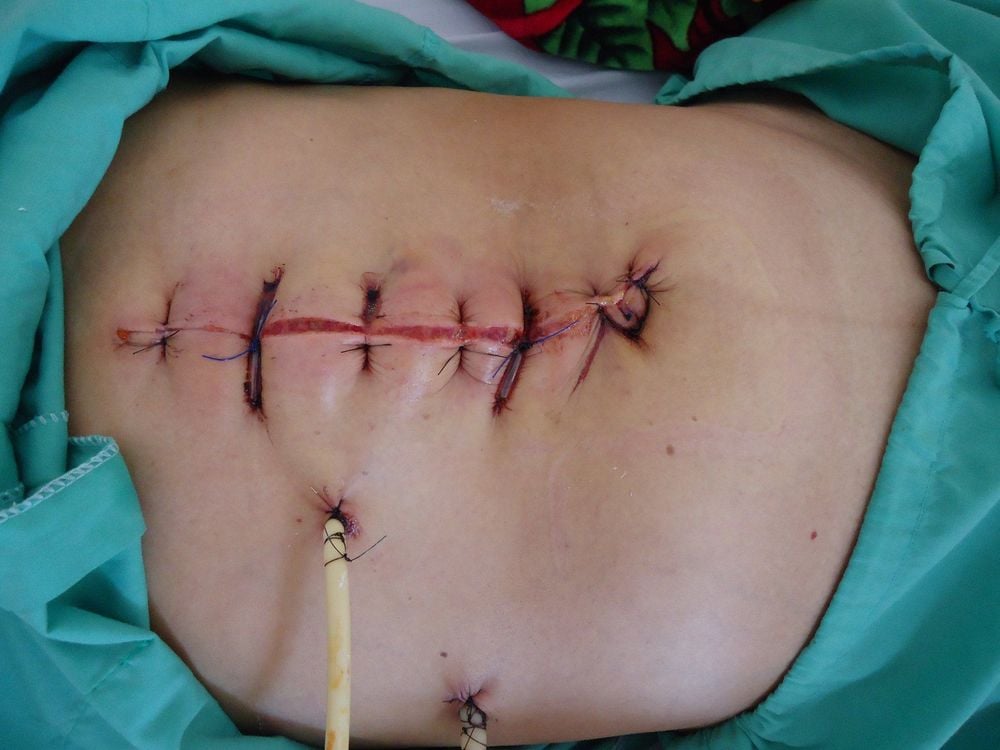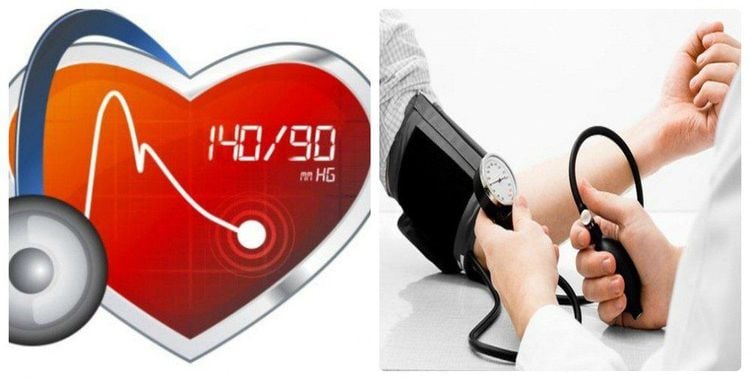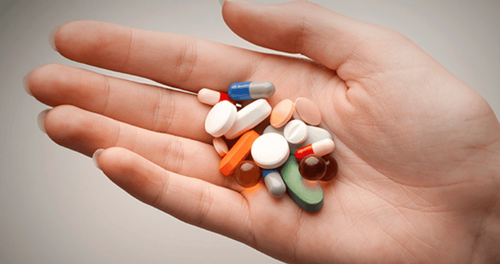This is an automatically translated article.
The article is professionally consulted by Resident Doctor Le Thanh Tuan - Gastroenterologist - General Surgery Department, Vinmec Nha Trang International HospitalSurgical site infections in diabetics make patients 2 times more likely to die than the general population. Therefore, understanding and knowing how to avoid this risk is extremely important.
1. Infectious complications in diabetic patients
Complications of surgical site infection in diabetic patients are of many types. In which, the most common are places on the body where there are many bacteria such as the urinary tract, lungs, skin, soft tissues or teeth.
With urinary tract infections common in women with high blood sugar. Symptoms of the disease are mild or no fever, difficulty urinating. Urine is cloudy or has sediment, even blood when urinating.
In the form of lung infection, the patient has a high fever, cough, sputum, and even blood. If not treated in time, the disease can lead to extremely dangerous complications such as lung abscess, blood infection.
In some patients with bacterial infections due to high blood sugar, foot ulcers, staphylococcal dermatitis, and fungal infections of the genitals are also common. This is a manifestation of soft tissue infection in patients with high blood sugar.
Diabetics also have to be very careful in how they take care of their teeth. Because diabetic infections can be the cause of tooth loss, tooth loss, gingivitis, periodontitis or tooth decay. Severe cases can cause swelling of the jaw and face and there have been some cases of death.

2. Why do patients with high blood sugar often get infections?
To answer this question, medical experts explain, high blood sugar creates favorable conditions for bacteria to grow. Incisions or even the smallest scratches create an opportunity for harmful bacteria to enter our body. This is the reason why diabetics are able to recover from wounds or incisions that take a long time.
3. Prevention of surgical wound infection complications in diabetic patients
In order to prevent surgical site infection complications in diabetic patients, first of all, patients need to have good control of blood sugar in the body, and need early and timely intervention if there are signs of surgical site infection. Hypoglycemia is considered a huge threat to diabetics before surgery.Hypoglycemia is defined as blood glucose <4 mmol/l. If the physician does not address hypoglycemia prior to surgery, neuropsychiatric changes can progress to dizziness, convulsions, and lead to a coma. The goal is to keep blood sugar levels between 6-10 mmol/l in diabetics to prevent surgical site infection complications. Patients with diabetes also need to be prioritized on the first surgery list so that the fasting time before surgery can be shortened.
In addition, patients themselves can actively prevent this complication for the body by regularly cleaning their teeth properly, using soft bristle brushes to avoid causing damage to the oral cavity.
Pay attention to good urinary tract hygiene, especially for women to minimize the possibility of urinary tract infections. Clean the skin every day, use mild moisturizing soap and help the skin dry. If scratches appear on the skin, they should be cleaned with alcohol and bandaged as soon as they are discovered.
Don't forget to soak your feet daily with warm water, massage your feet to help blood circulate well in your feet. It is important that you do not forget to exercise for 30-60 minutes a day to strengthen the body's health and resistance.

Using the screening package for diabetes and dyslipidemia at Vinmec, customers will receive:
Endocrine CK examination (with appointment) Total urinalysis (by automatic machine) Quantitative Glucose Quantitative HbA1c Quantitative Uric Acid Quantification of Cholesterol Determination of HDL-C (High density lipoprotein Cholesterol) Determination of LDL-C (Low density lipoprotein Cholesterol) Determination of Triglycerides Determination of Urea Determination of Creatinine Measurement of AST Activity (GOT) Measurement of ALT Activity (GPT) Measurement of GGT activity (Gama glutamyl Transferase) Quantification of MAU (Micro Albumin Arine) Echocardiography, transthoracic pericardium, Normal ECG, Carotid Doppler ultrasound, Transcranial Doppler (carotid) Arterial Doppler ultrasound, veins of the lower extremities (bilateral lower extremity arteries)
Please dial HOTLINE for more information or register for an appointment HERE. Download MyVinmec app to make appointments faster and to manage your bookings easily.














